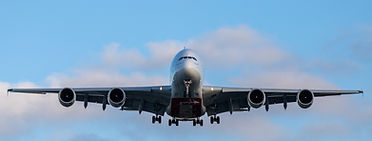
Scheduling at Airbus
About the company
Airbus is the European leader in aeronautics and aerospace industry. They manufacture about half of all commercial airliner orders and have over 125,000 employees all around the world. The challenge at hand tackles a problem of scheduling in an Airbus production unit in Spain


The Challenge
Aircraft manufacturing is very complex and it involves thousands of tasks and constraints. The objective of the challenge is to optimize the manufacturing schedule of a plane in order to minimize workload and overall makespan

23%
2%
5 to 35 sec
decrease in peak workload
difference between the makespan and its proven optimum
execution time
Winners of the Challenge

Laura Rico Aldana
Laura developed a software based on the combination of a greedy algorithm and a genetic algorithm. She boosted the algorithm's performance by including the evaluation of the lower bounds of both the workload and the makespan. This allowed her to obtain in less than 11 minutes of execution, a proven optimal solution with regard to the workload that is 23% better than Airbus reference solution and a makespan that is less than 2% different from the optimal value. Besides, Laura proposed strategies to reduce even more the workload targeting some specific work intensive tasks.
A word from the professor
Working on this scheduling problem from Airbus was fascinating. It's a highly complex problem with over seven hundred tasks and thousands of constraints. This had two major consequences for the students. First, the algorithms had to be implemented in a very effective manner to keep execution time as low as possible. Second, a direct application of state of the art optimization methods was not enough. The students who outperformed had to dig deep into the problem, understand its underlying structure and derive from there what we call in optimization lower bounds. A lower bound is a minimum value of the objective that is not feasible but when this information is adequately implemented in the algorithms, their efficiency is improved by many orders of magnitude.

Prof. Rabie Nait-Abdallah
Leader of the Challenge
Javeriana University






